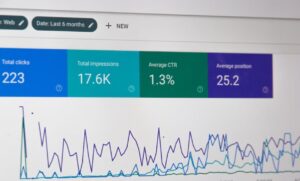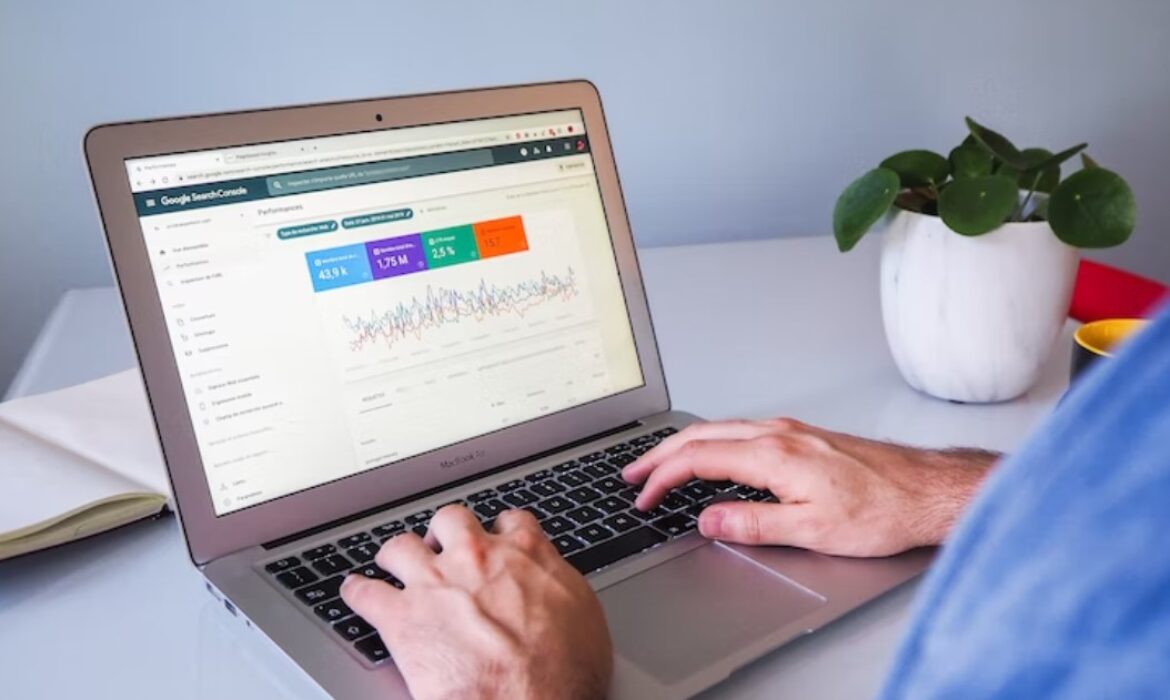Why WordPress is the Best Content Management System(CMS)
WordPress Content Management System(CMS)

WordPress is the best Content Management System with billion of users across the world. It has a 60.8% market share in Content Management Systems.
It powers a lot of sites to succeed in the digital space, but not everyone who builds and develops using WordPress is a well-trained developer.
Without enough knowledge in coding, anyone can use it for the power-packed functions of your website. The user experience(UX) and user interface(UI) are crucial things to consider WordPress is the best Content Management System.
The WordPress dashboard is user-friendly anyone can access what they want inside WordPress and where to go as well as what to do.
Apart from UI, and UX, WordPress has plenty of themes, tools, and plugins available. Some of the plugins are free as well as some others are paid plugins.
Most of the plugins really help you to have an effective use on your website for various functions.
Based on the user experience, WordPress constantly updates the themes, plugins, and tools associated with it to provide a better experience for the users. You can easily install new plugins and activate them with ease.
The plugins will actually help along the way preventing you from login attempts by hackers, managing spam comments for your blog post, Optimizing your website for SEO, implementing CSS&Javascript codes on your site, and many others.
Most internet users are accessing it through their mobile phone, so optimizing your site for both desktop and mobile phone screen ratios respectively and even if you should focus on tablet as well, these optimization for different screen ratios are available in some of the default and plugin that you have installed in WordPress.
The WordPress community keeps growing as the days passed because nearly 60% of the site users are using WordPress so it is getting better day by day.
How Google Search Works & What is meant by Crawling?
As we all know, Google is one of the most popular search engines across the world and it occupies more than 90% of the market share in 2022.
How Google Search Works?
Have you ever thought that How Google Search Engine works?
What are the Main Functions of Crawling?

However, only a few people actually know what’s inside. If you want to become a part of the small group, then you’re in the right place!
There are plenty of factors to be considered by Google to show relevant results to a search query, and we can’t able to say a single factor can determine it.
Whenever A user types a search query on the Google search engine, the function behind it will search index for relevant pages on various websites, store them in a large database, and show the relevant information based on the search query on the SERPs
For instance, assume that Google is a city.
In a town, there are houses that we can think of as “websites”.
Each room inside the house is like a different “web page” on the site, the stairs, and pathways that connect different rooms are “internal links” between the site’s pages.
Connecting these houses are roads, which act as “external links”.
Big popular websites are like a shopping mall with huge traffic.
The highest relevant information for the search query will be shown as a result and search engines rank your website based on three stages:
- Crawling
- Indexing
- Ranking
1. Crawling

It is the first stage of a Google search function, the search engine spider or bot finds & discovers content by crawling it. The spider finds out what pages are existing on the web and collects text, images, and videos that are found on the web. There are billions of spiders who crawl billions of websites to find what is on the web page. It is totally an automated process of crawling a website and determining how often, and at what time intervals to crawl could be insisted. The main objective of crawling includes finding web pages and discovering them.
2. Indexing

Once the web pages are crawled, it analyzes what is all about on your web page. Relevancy plays a crucial role in indexing, spiders decide how relevant your content is by analyzing your web page.
3. Ranking

The functions of both Crawling and Indexing help to find & discover content as well as collect information that is found on the web page and analyze the web page based on relevancy as per the search query.
From the above functions, Google will return the relevant content as a result of the user’s search query.
How On Page SEO Helps to Rank a Blog Post Smoothly?
On-Page SEO is important to rank your blog post smoothly. Search engines can easily understand what your content is and provide better results for their users. Additionally, it improves the ranking score for your blog.
What is On-Page SEO?
On-Page SEO is one of the techniques to increase your website ranking on the search engines like Google, Bing, and Yandex with high-quality content optimization. Its the process of editing and updating the On Page blog content and make the Google crawlers to effectively crawl your website.
On-Page SEO Factors that Help to Rank a Blog Post Smoothly
1. Good Quality Content
If your content is not good you will not survive Online. Because well-optimized content makes SEO easier. So, you can choose high-quality content for your post.
Things you can consider for creating good quality content
- Avoid plagiarized contents
- Don’t use existing titles
- Avoid copyrighted images
- Use free stock images
- Verified video links
- Infographics
2. Content Optimization
You can Optimize your content with related keywords. If your content is not focused on the keyword, then it affects your site ranking. Keywords are one of the primary factors for On-Page SEO. Try to embed the keywords wherever necessary to improve the ranks.

3. Title Tag
You can give your post titles with keywords.
And another thing is optimizing your titles with HTML tags. Proper usage of heading tags with keywords will help you rank the blog easily.
Headings and optimizing title content make your On-Page SEO process smooth.
4. URL Optimization
It has two elements: domain and slug. URL optimization is one of the basic SEO ranking factors of On-Page. You can separate the URL with hyphens and avoid repeatable keywords for your blog page.
5. Meta Description
If the users can easily identify your whole page content with small descriptions, It allows users to click and explore your content. However, you can give your meta description with your focusing keyword. If you avoid keywords on meta descriptions, you will lose your SEO score on search engines.
6. Multimedia Elements
Adding multimedia elements to your content increases readability. If you do On-Page SEO, you can rename your image with keywords and headings using the alt tag.
7. Tags
Tags are findable elements for search engines. So, it helps Google to understand your website content. Always you should be included tags with keywords and focusing points for your content.
8. Links
There are two types of links available for On-Page SEO, one is Internal Links, and another one is external links. Internal link helps users to find another page on your site. External links target another page for related content published on other domains.

Things to consider on Internal links
- Avoid giving links to Keywords
- Give links for long tail words
- Avoid links to homepage
Things to Avoid on External links
There are two types of factors available for External Links.
They are “no follow” and “do follow”. Do follow links allow page ranking signals and no follow links do not do that. Further, no follow links dont affect your ranking.
9. Page Speed
Loading page speed is the main factor for page ranking. So, you can optimize your images and graphic elements on your post. If your page takes a long time for processing, then use Google page insights and optimize your page.
10. Mobile Friendly
Nowadays, most users use mobile for their needs. So your domain should give a more readable experience on mobile devices. If you plan to build a new domain, we suggest WordPress for your site. Because WordPress themes come well-optimized for all digital devices.
How do backlinks help to boost ranks?
What are Backlinks?
A backlink is a link where one website is linked to another with an anchor text. This is one of the important thing followed by most of the SEO consultants to boost the ranks of the website. There are 200+ factors that determine the ranking, but only a few factors like titles, headings, URLs, images, and links are publicly known.
There are many algorithm updates given by Google regularly with many changes in the search ranking factors, but still backlinks remain as one of the core ranking factor. That’s why backlinks act as the backbone for any website to increase traffic.

How do backlinks help to boost ranking?
Backlinks are the links which is attained naturally when someone links to your content from their website. But normally most people do guest blogging to build links and improve their ranks.
In other words, if a blogger or business owner is looking to rank his content, the first step is On-Page SEO optimization, and then comes the backlinks. The links will be tried to be attained from the highly authorized websites and the websites that are ranked at the top positions.
But not all the backlinks will be helpful to increase traffic, backlinks initimate the search engines that the content is precious and strong enough to rank at the top position. You can attain backlinks from websites like Forbes and Wikipedia, only if your content has the exact and right solution for the searches.
There is a myth known by many SEO consultants and beginners that a website that contains more backlinks can be ranked easily. It’s not true, a single link from UK Business Magazine, Forbes, Wikipedia, and premium websites is more powerful than thousands of links from many other small websites.
This is because Google Bot will trust highly authorized websites more than any other small websites and a single link from those websites will initimate the search engine that your content is valuable compared to other websites. This helps the website to rank fast in the top position.
It depends on the value and strength of your content according to the search. Try to optimize your content to satisfy Google algorithms and attract highly authorized websites with valuable content.

Conclusion
Finally, the backlinks are directly related to the ranking and traffic growth of a website, you can screen this when you audit your website using any tool like Ahrefs. Content and backlinks are the two main factors that help to increase traffic to a website.
So, make sure the backlinks in your website are good enough and they are from highly authorized sites.







